Cross-platform app development has revolutionized how mobile, web, and desktop apps are built. Enabling developers to create cross-platform apps from a single codebase, modern frameworks help streamline the development process, reduce costs, and accelerate time-to-market. One of the most well-known tools in this space is Flutter—Google's open-source framework known for its native rendering capabilities and extensive community support. However, Flutter is not the only option available for building mobile and web apps in 2025. This guide explores the top Flutter alternatives to help you build native apps with optimal performance and seamless integration across multiple platforms.
Why consider alternatives to Flutter?
Flutter allows developers to create native mobile apps for iOS and Android using the Dart programming language. Its ability to deliver native performance through a custom rendering engine and features like hot reload make it a popular choice for mobile app development. However, it also presents some limitations:
- Dart programming language: Dart is less widely used than JavaScript, Kotlin, or C#, leading to a steeper learning curve for teams not familiar with it.
- Non-native UI components: Flutter doesn’t use native UI controls, which can compromise the platform-specific look and feel.
- Integration challenges: Connecting Flutter apps with existing backend systems or legacy codebases often requires workarounds.
- Long-term viability: Concerns persist due to Google’s history of discontinuing products, prompting some to seek more stable long-term options.
These challenges have led many organizations to consider other frameworks that align better with their programming languages, workflows, and strategic goals.
To support your selection of a cross-platform framework, it's helpful to understand where each tool stands globally. The following table outlines current adoption trends, estimated market share, and regional strengths.
Understanding major cross-platform frameworks' market share and regional distribution is crucial for making informed app development decisions. Different frameworks thrive in various regions and industries, depending on developer community support, language preference, platform focus, and integration with existing enterprise tools. This section provides an overview of how top Flutter alternatives are positioned globally in 2025, offering insights into where each framework excels and who uses them.
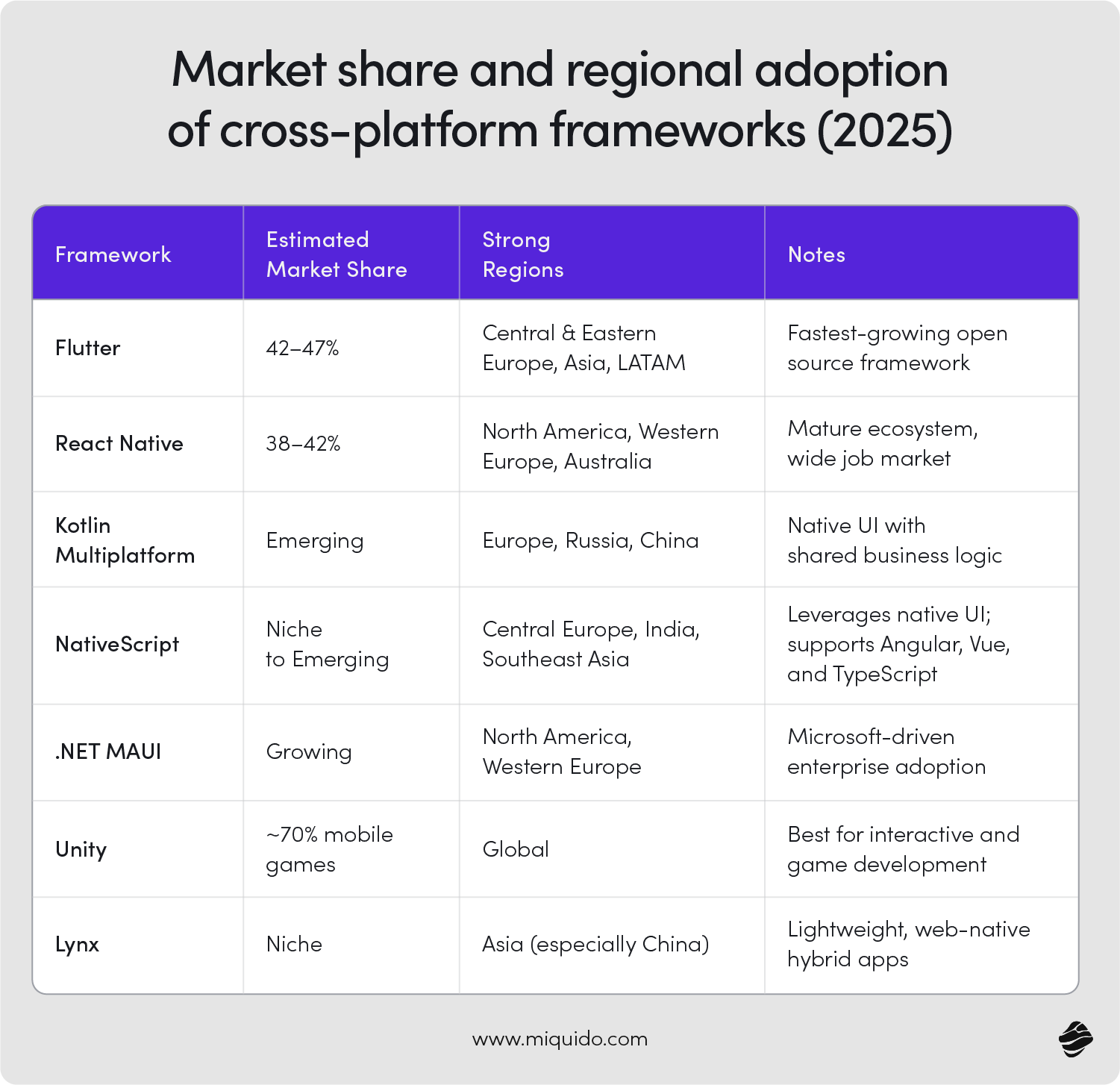
Note: Percentages are estimates based on developer surveys, industry reports, and public adoption data. Some frameworks (Kotlin Multiplatform, .NET MAUI, Lynx) do not have widely published exact market share but are included based on trend data and regional impact.
Sources:
- Market overview and adoption of cross-platform development frameworks. MarkWide Research, 2025.
- Cross-platform development market growth report. LinkedIn Pulse, 2025.
- Flutter vs React Native comparison with market share data. CrustLab Blog, 2025.
- Cross-platform software market report 2025. Research and Markets, 2025.
- Developer adoption and job market analysis for Flutter and React Native in 2025.dev.to, 2025.
These references reflect data sources such as developer surveys, market reports, and industry analyses supporting the framework market share and regional distribution insights in 2025.
1. React Native — a mature JavaScript ecosystem for cross-platform mobile apps
Developed initially during a Meta internal hackathon in 2013 and released in 2015, React Native was created to bring the power of React’s component-based architecture to mobile development. It quickly became one of the most widely adopted frameworks for cross-platform app development.
React Native is a top-tier cross-platform framework known for its ease of use and large ecosystem. It empowers developers to build native apps using JavaScript and React with familiar web technologies for both iOS and Android.
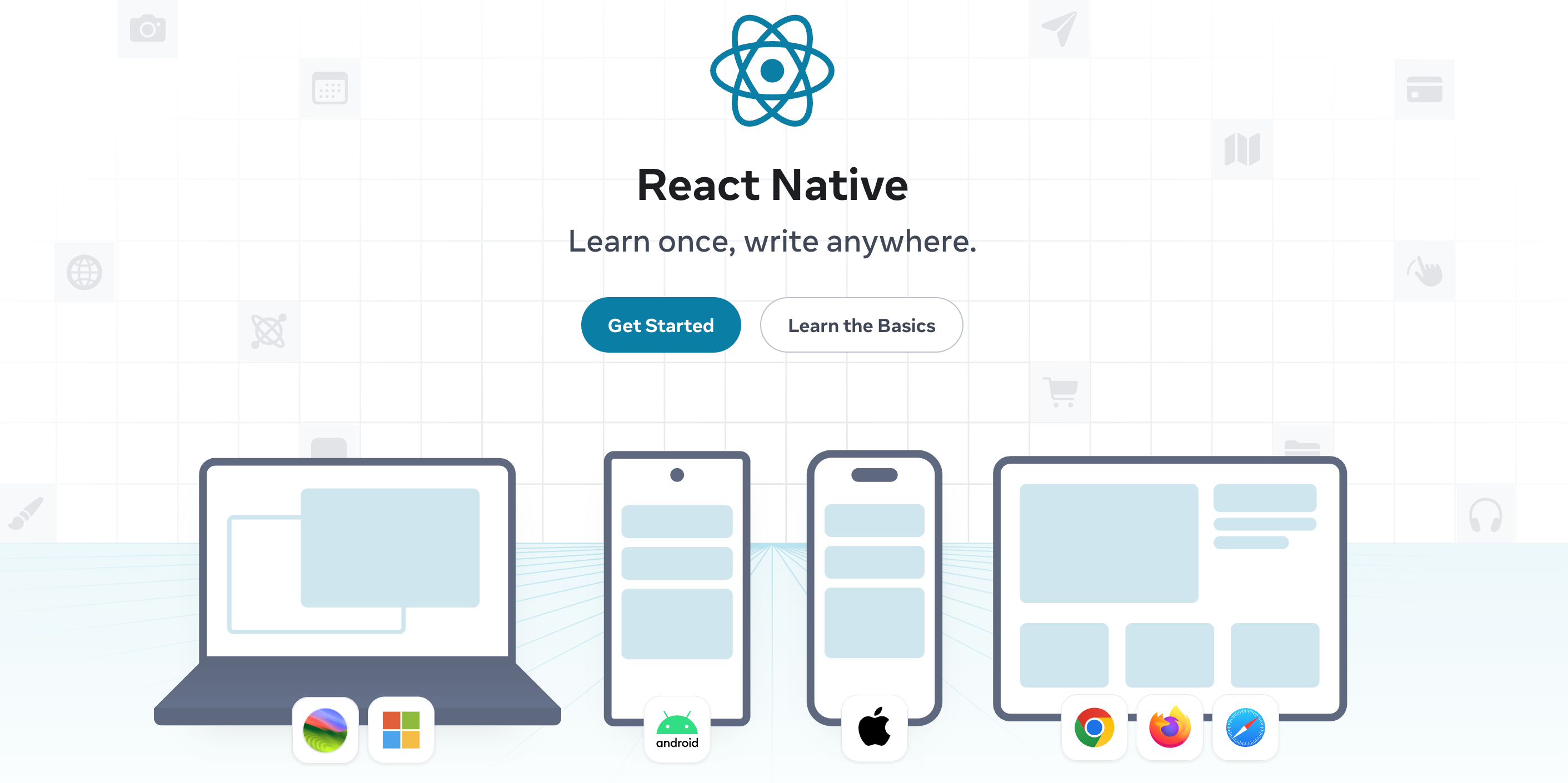
Key features
- Built with JavaScript or TypeScript
- Leverages native rendering for better user interfaces
- New architecture (Fabric & TurboModules) enhances performance
- Integration with Expo, Firebase, and other tools simplifies development
Ideal use cases
- MVPs and startup projects
- Social media and e-commerce platforms
- Web-first teams transitioning to mobile
Regional and market adoption
- Market share: 38–42%
- Regions: Dominates in North America, Western Europe, and India
- Programming languages: JavaScript, TypeScript
- Development tools: Strong integration with web development workflows and IDEs like Visual Studio Code
Created by JetBrains, the originators of the Kotlin programming language, Kotlin Multiplatform emerged as a way to share business logic across platforms while keeping native UIs. It is especially popular among Android developers looking to extend functionality to iOS and beyond.
Kotlin Multiplatform is designed for teams that want to share code between platforms without compromising native UI performance. It leverages the Kotlin language to streamline development and bridges Android and iOS with a unified codebase. For teams that want to share code between platforms without compromising native UI performance. It leverages the Kotlin language to streamline development and bridges Android and iOS with a unified codebase.
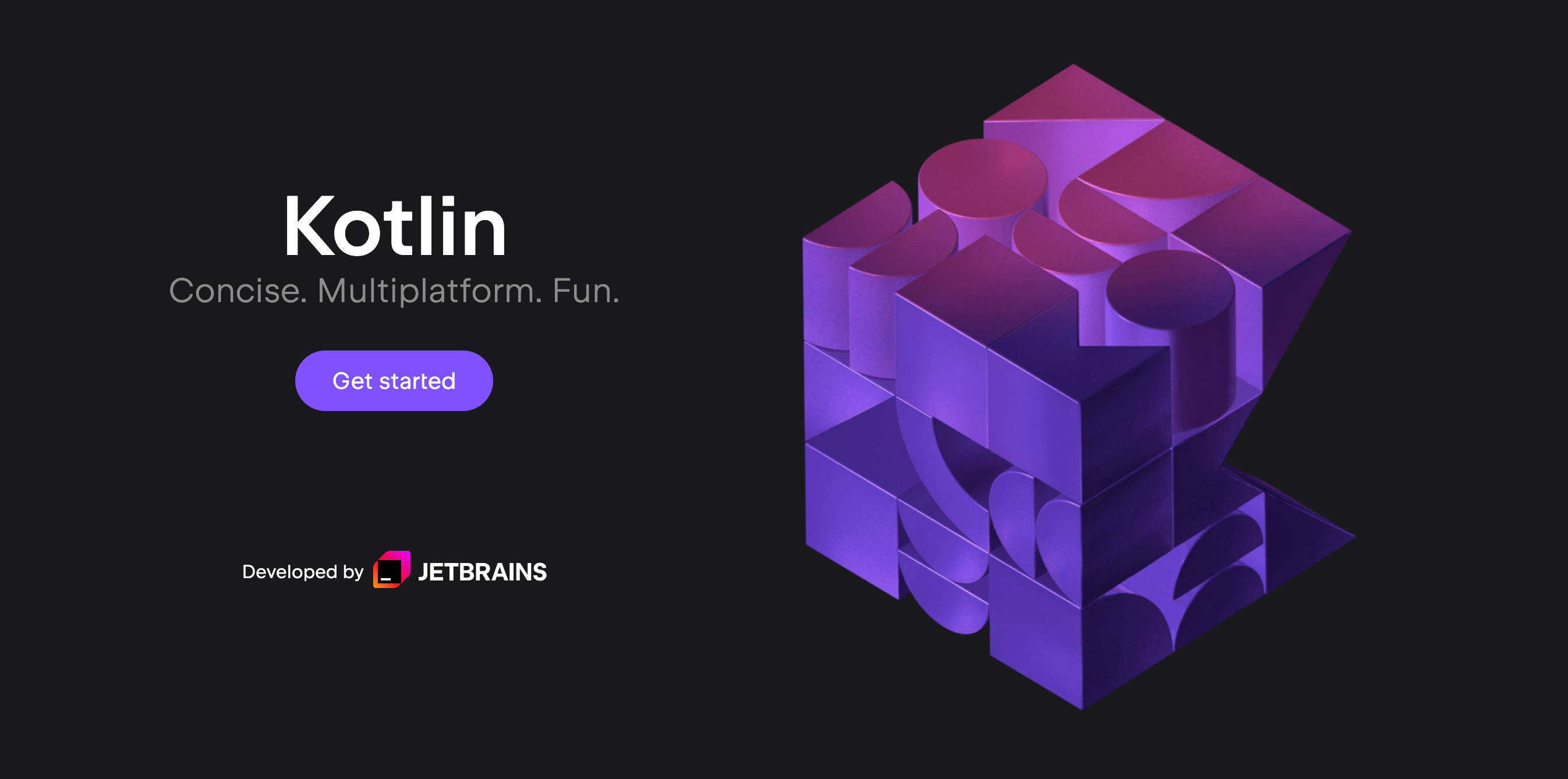
Key features
- Shared codebase for business logic using Kotlin
- Uses native UI components via Compose Multiplatform, SwiftUI, etc.
- Deep IDE support with Android Studio
- Interoperability with Java, Objective-C, and Swift
Ideal use cases
- Enterprise and fintech applications
- Android-first teams building iOS apps
- Projects requiring platform-native UI fidelity
Regional and market adoption
- Market share: Rapidly growing, especially in Europe and China
- Programming language: Kotlin
- Integrated development environment: Android Studio
3. NativeScript — full native API access with web technologies
NativeScript, initially developed by Telerik (now Progress Software) and launched in 2014, was one of the first frameworks to give JavaScript developers full access to native mobile APIs. It was later donated to the OpenJS Foundation and is a solid option for web developers looking to build native mobile apps.
What makes NativeScript stand out is its ability to let developers use familiar web technologies like JavaScript or TypeScript to create truly native mobile applications. It effectively bridges the gap between web and mobile, offering direct access to platform APIs without the need to learn an entirely new language or toolset.
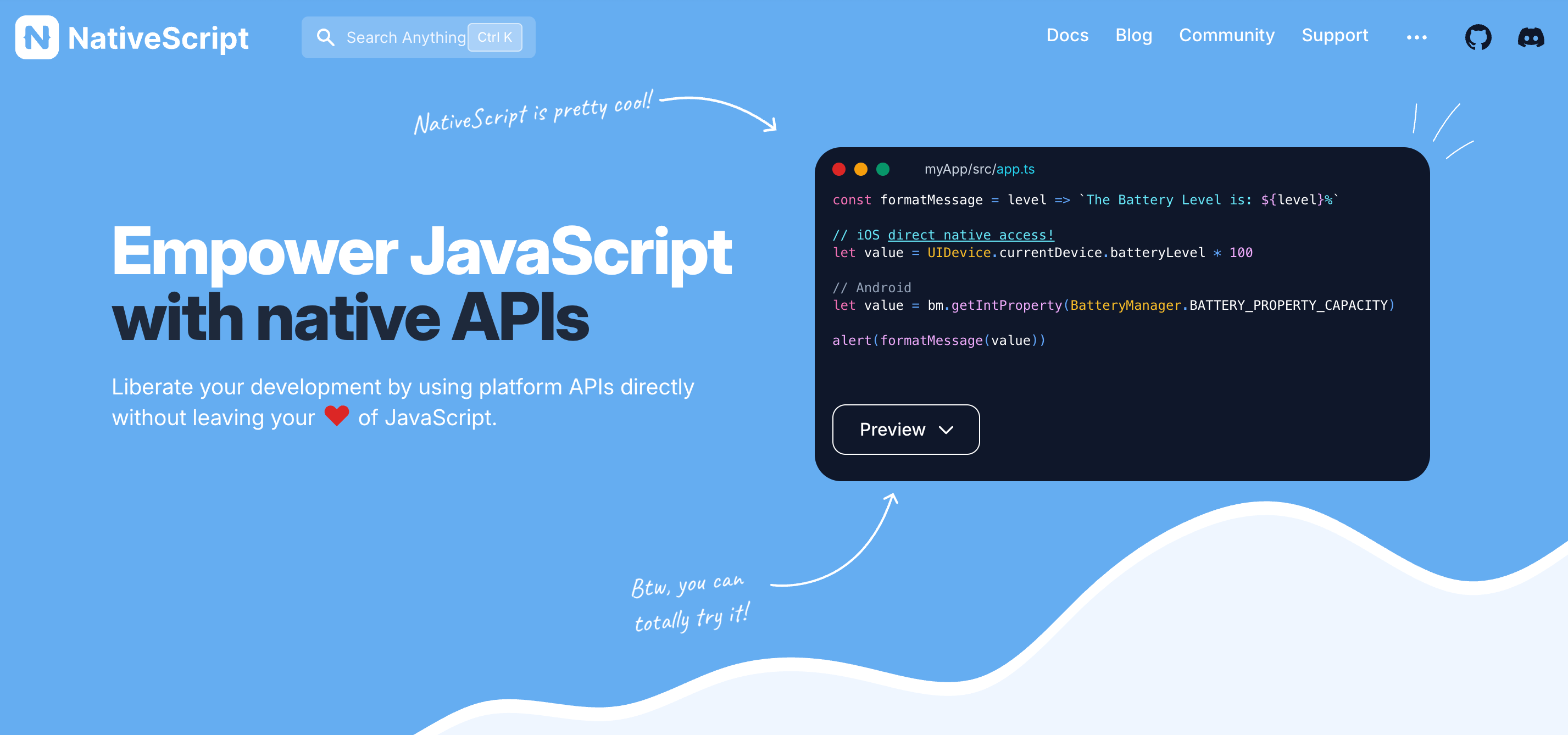
Key features
- Write mobile apps using web technologies: HTML, CSS, JavaScript/TypeScript
- Full access to iOS and Android native APIs
- Strong support for Angular developers
- Managed by the OpenJS Foundation
Ideal use cases
- Hybrid mobile applications that require native capabilities
- Teams with strong web development skills
- Progressive web apps transitioning to native
Regional and market adoption
- Market share: Niche but steady
- Regions: U.S., India, and Eastern Europe
- Programming languages: JavaScript, TypeScript
- Use in hybrid app development: Strong fit for small teams
4. .NET MAUI — enterprise-grade cross-platform development
.NET MAUI (Multi-platform App UI) is Microsoft’s modern successor to Xamarin.Forms, introduced in 2021 and built on .NET 6 and later. It was designed to streamline the development of both mobile and desktop applications using C# and XAML—all within the Microsoft ecosystem.
Built with scalability in mind, .NET MAUI is well-suited for enterprise needs. It allows developers to create native apps for multiple platforms with a single codebase, while offering full access to native APIs and seamless integration with Microsoft’s development tools.
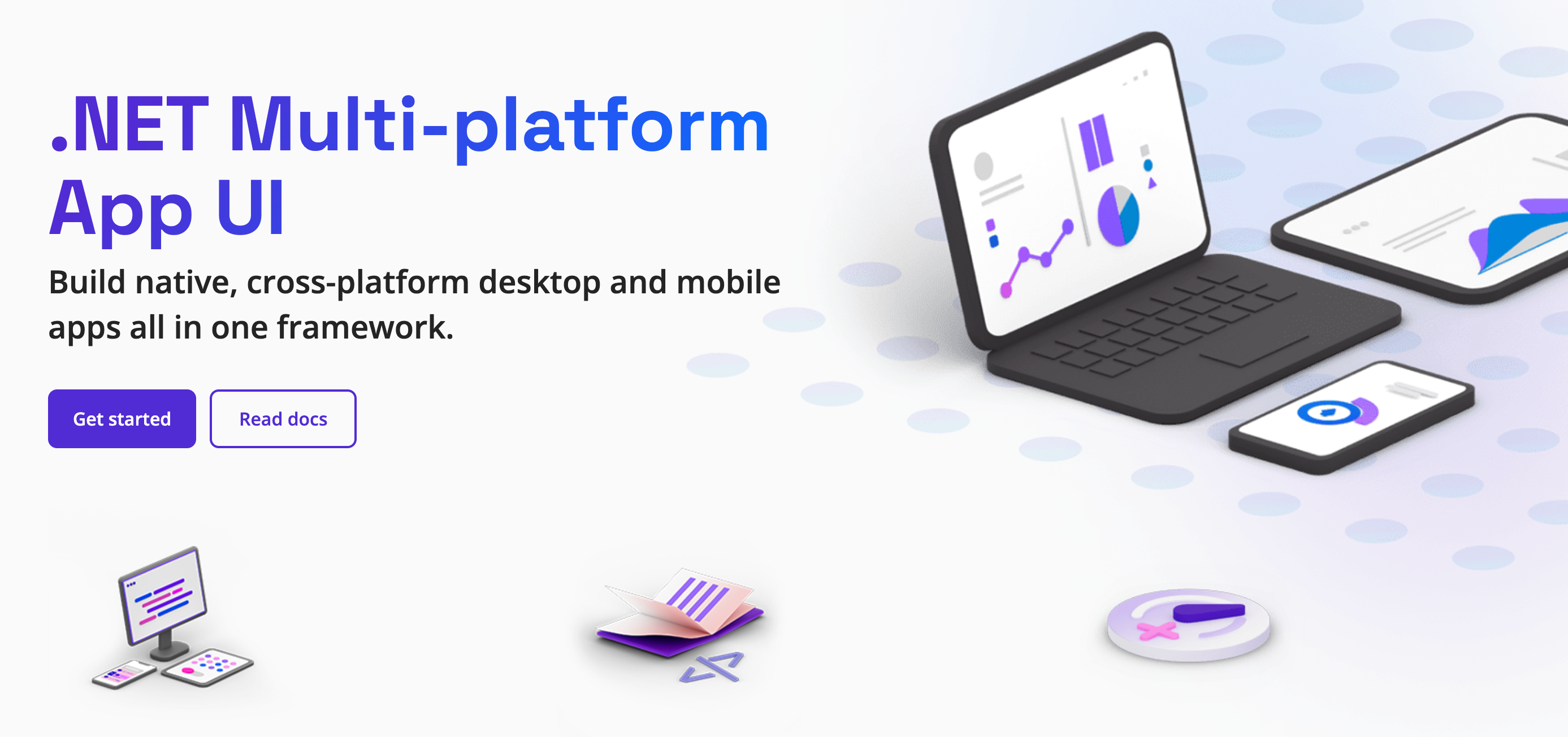
Key features
- Unified codebase for mobile and desktop apps
- Access to native APIs and native UI controls
- Rich library of pre-built UI components
- Excellent support through Microsoft, Azure, and GitHub
Ideal use cases
- Internal enterprise tools and dashboards
- Business applications in regulated industries
- Projects built with ASP.NET Core or .NET libraries
Regional and market adoption
- Market share: Growing in Microsoft-centric environments
- Regions: North America, Australia, Western Europe
- Programming language: C#
- Development environment: Visual Studio, Azure DevOps
5. Unity — immersive and interactive app development
Unity was launched in 2005 as a 3D game engine for macOS, but it quickly grew into a leading cross-platform tool for building immersive and interactive content. Today, it’s a dominant force in mobile game development and is widely used in fields like education, architecture, and healthcare.
While rooted in gaming, Unity’s capabilities go far beyond. It supports the development of rich, interactive experiences across mobile, web, desktop, and AR/VR platforms. Its flexibility and powerful rendering make it a go-to solution for developers creating immersive applications across industries.
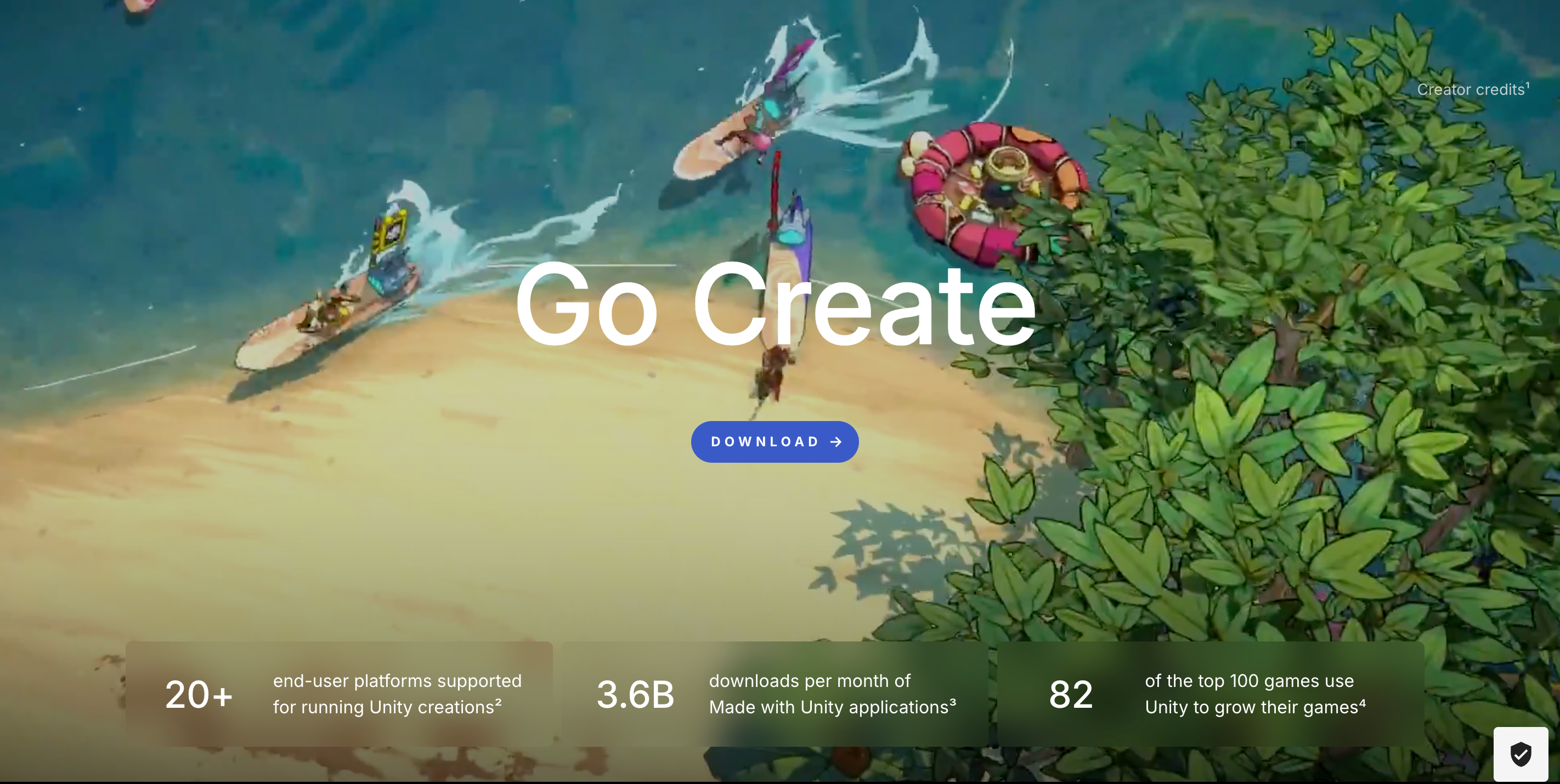
Key features
- Uses C# with support for complex animations and custom graphics
- Cross-platform deployment to mobile, web, desktop, console, and XR
- Massive plugin ecosystem and asset store
- Ideal for gamified mobile applications, simulations, and AR/VR
Ideal use cases
- Game development
- AR/VR applications for education, healthcare, or training
- Mobile apps need advanced rendering or animation engines
Regional and market adoption
- Market share: Dominant in game development (70% mobile, 30% PC)
- Regions: Global (especially strong in NA, Europe, Asia)
- Programming language: C#
6. Lynx — Lightweight Framework for Web-Native Hybrid Apps
Lynx is a lightweight hybrid app framework created by ByteDance, the company behind TikTok, to simplify internal mobile development using familiar web technologies. It was later open-sourced to help other developers build high-performance apps with a smaller footprint.
Built on web standards like HTML, CSS, and JavaScript, Lynx enables the creation of fast, efficient mobile apps that deliver performance close to native. It’s a practical choice for teams looking to balance speed, flexibility, and performance in mobile development.
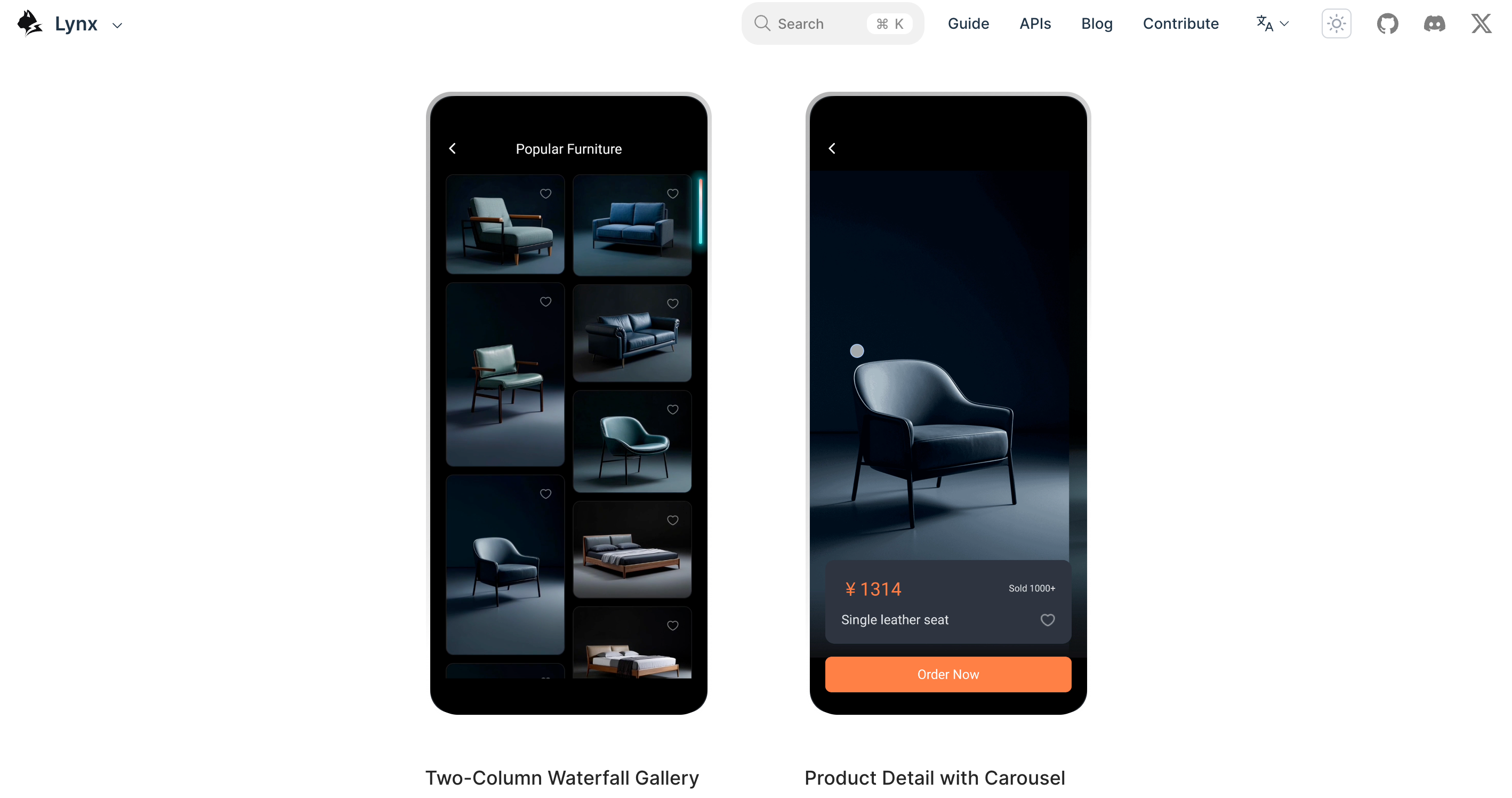
Key features
- Uses standard web technologies with native rendering capabilities
- Small runtime for faster loading and better performance
- Open source and under active development
- Used in ByteDance production apps
Ideal use cases
- Mini-apps, consumer utilities
- Web and mobile apps require rapid prototyping
- Projects emphasizing small app size and quick iteration
Regional and market adoption
- Market share: Niche
- Regions: Asia, particularly China
- Programming languages: HTML, CSS, JavaScript
Key factors to consider when choosing a Flutter alternative
Choosing the right cross-platform framework involves evaluating technical requirements, team expertise, project scale, and long-term support. Here are the key factors to guide your decision.
1. Programming language alignment
Selecting a cross-platform framework that aligns with your team’s existing programming languages can significantly reduce the learning curve and boost productivity. Options include:
- JavaScript/TypeScript: React Native, NativeScript, Lynx
- Kotlin: Kotlin Multiplatform
- C#: .NET MAUI, Unity
2. Target platforms
Identify whether your application must support iOS, Android, desktop, or web applications. Frameworks like .NET MAUI, Unity, and Kotlin Multiplatform offer broader platform support beyond mobile.
3. Performance and native access
Apps that demand high native performance—such as games, simulations, or AR/VR—benefit from frameworks that offer deep access to platform-specific APIs and native device features, such as Unity and Kotlin Multiplatform.
4. Development tools and ecosystem
Look for a robust integrated development environment, strong testing tools, and pre-built UI components. Tools like Visual Studio (for .NET MAUI) and Android Studio (for Kotlin) streamline development and debugging.
5. Use case suitability
Match your use case to the right cross-platform framework:
- React Native: General-purpose cross-platform mobile apps
- Kotlin Multiplatform: Native UI with shared logic
- NativeScript: Web-to-native and hybrid app development
- .NET MAUI: Enterprise-grade business applications
- Unity: Interactive, visual, and gamified mobile apps
- Lynx: Lightweight hybrid apps built with HTML, CSS, and JavaScript
6. Community and long-term support
When choosing a cross-platform framework, it’s essential to look beyond just technical features. Frameworks with active community support, regular updates, and backing from well-established organizations tend to offer greater long-term value. A vibrant community means faster issue resolution, a broader pool of shared knowledge, and a steady stream of open-source contributions. Frequent updates ensure the framework stays current with new platform requirements, security standards, and performance improvements, crucial for maintaining a stable and competitive product.
Frameworks like React Native, .NET MAUI, and Kotlin Multiplatform exemplify this ecosystem strength. React Native is supported by Meta (formerly Facebook), with an extensive global developer base and a rich library ecosystem. .NET MAUI benefits from Microsoft’s backing, offering deep integration with its toolchain and long-term enterprise support. Kotlin Multiplatform, driven by JetBrains—the creators of Kotlin—has seen growing adoption for shared code projects across Android, iOS, and beyond. Choosing a framework with this level of support accelerates development and reduces risk over time.
7. Future-proofing
Ensure the framework you choose is actively maintained and has a clear roadmap for supporting future operating systems and hardware features. Avoid deprecated or stagnant tools.
To help you navigate these choices effectively, working with an experienced development partner can make all the difference.
Miquido's Flutter and cross-platform development services
At Miquido, we provide end-to-end support for Flutter and cross-platform mobile development—whether you're building a new app from the ground up or transitioning from an existing web solution. We focus on delivering fast, secure, and scalable products that meet business and user needs.
As early adopters of Flutter, we’ve worked with the framework since its early days, gaining deep expertise in creating high-performance, visually polished apps for multiple platforms. Our work has been recognized at major industry events like Google I/O, and we continue to push the boundaries of what’s possible with cross-platform development.
We provide comprehensive Flutter development services
At Miquido, we offer end-to-end Flutter development services designed to turn your ideas into high-performing, cross-platform applications. Whether you're building a consumer-facing product or an enterprise-grade solution, our team brings the technical expertise and strategic insight needed to deliver results. Here's how we support your mobile app journey:
- Flutter app development: We create native mobile apps using a single codebase, enabling faster time to market and reduced development costs. Our team leverages Flutter’s native rendering capabilities and pre-built UI components to ensure pixel-perfect user interfaces.
- Cross-platform mobile solutions: Whether you need iOS apps, Android apps, or even desktop apps and web applications, we build seamless cross-platform mobile apps tailored to your goals. We focus on native performance, access to native device features, and seamless integration with your tech stack.
- Full lifecycle support: From ideation and rapid prototyping to final deployment and maintenance, we support you through every stage of your mobile app development journey.
- Enterprise-grade integrations: Need integration with .NET libraries, ASP.NET Core, or Visual Studio DevOps pipelines? We’ve got you covered. Our team ensures scalable, secure architecture for mobile and web apps in complex enterprise environments.
- Technology agnostic expertise: While Flutter is our go-to framework, we also work with other frameworks like React Native, offering flexibility based on your project requirements and existing programming languages.
With a proven track record in building hybrid and native mobile applications for clients across industries, we’re here to help you build mobile apps that perform beautifully and scale effortlessly.
Flutter case study: Diagnostyka app
One of our standout projects is the Diagnostyka mobile app, developed for one of Poland’s leading medical laboratories. Diagnostyka came to us in October with an ambitious goal: to launch a fully functional MVP by December in time for a major Google conference. Leveraging our mobile expertise, we built the cross-platform app using Flutter to extend their existing web platform into a secure, high-performance mobile experience.
The application supports three languages (Polish, English, and Ukrainian), provides intuitive access to test results in PDF format, includes mojeID verification, and utilizes biometric login. Key features include full accessibility for visually impaired users and integration with LabPlus, enabling AI-powered result interpretation. Designed to focus on user experience, safety, and reliability, the app is now used by over 64,000 users and ranks among the top medical apps in local app stores.
The project's success was recognized at the Mobile Trends Awards 2024, where the Diagnostyka app won in the "Services & Daily Life" category. This award acknowledged its innovation in healthcare technology, exemplary UX/UI design, and positive user impact across Poland.
Final thoughts on Flutter alternatives
Choosing the right cross-platform framework is not only about technical specifications—it’s about aligning with your team’s strengths, business objectives, and product vision. Each framework covered in this guide brings something different, whether React Native’s mature ecosystem or Kotlin Multiplatform’s native UI fidelity.
To wrap up, here's a side-by-side comparison of the frameworks discussed above, helping you align your needs with the right tool: of the frameworks discussed above, helping you align your needs with the right tool:
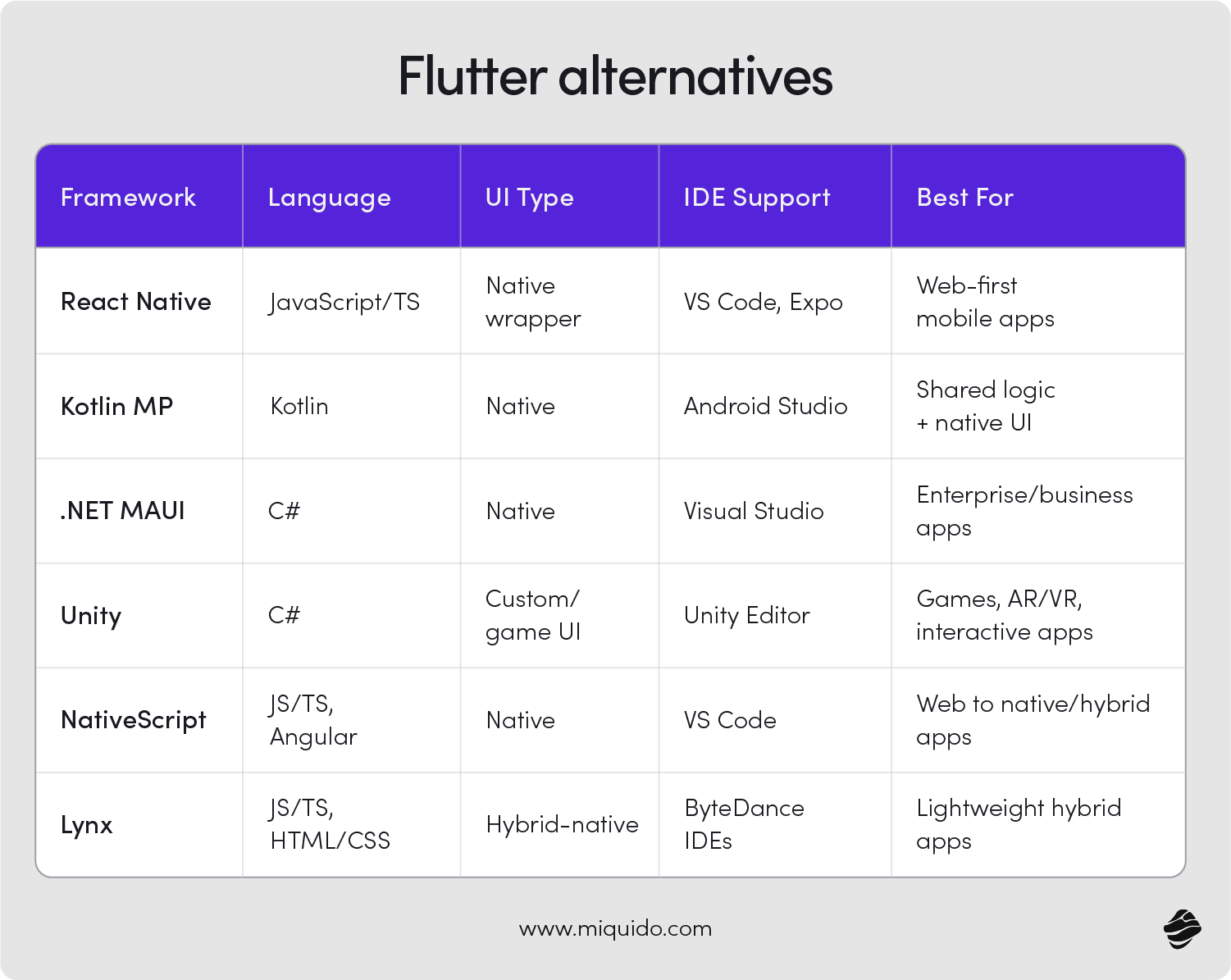
The landscape for cross-platform mobile development in 2025 offers various tools and frameworks tailored to different goals. Your ideal choice depends on your target platforms, performance needs, and development resources.
While Flutter remains a powerful open-source framework for creating mobile apps, it’s not the only solution. In 2025, the cross-platform development landscape will be rich with alternatives, offering more choices than ever for teams looking to build high-quality, native mobile apps.
Whether you're working with web technologies, need native performance, or are building hybrid mobile applications with a rapid development process, there is a cross-platform app development framework suited for your needs. From React Native's web and mobile capabilities to Kotlin Multiplatform's shared business logic and native UI controls, each framework on this list enables developers to build cross-platform mobile apps efficiently.
Use this guide to evaluate your specific use case, team expertise, and long-term goals, and choose the Flutter alternative that best fits your vision for creating mobile apps that scale, perform, and delight users across multiple platforms.


![[header] 6 top flutter alternatives for modern app development](https://www.miquido.com/wp-content/uploads/2025/05/header-6-top-flutter-alternatives-for-modern-app-development.jpg)








